Surgical Health Services Research
Research Program Overview
Our research program encompasses genetic epidemiology and clinical epidemiology projects, with an overall aim to improve early detection of disease and health outcomes. Our work is primarily focused on lung cancer which is the leading cause of cancer deaths in the United States.
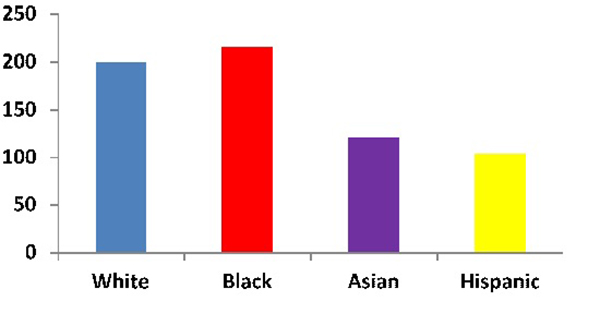
Age-adjusted SEER lung cancer incidence by race/ethnicity (2011), per 100K, age 50+
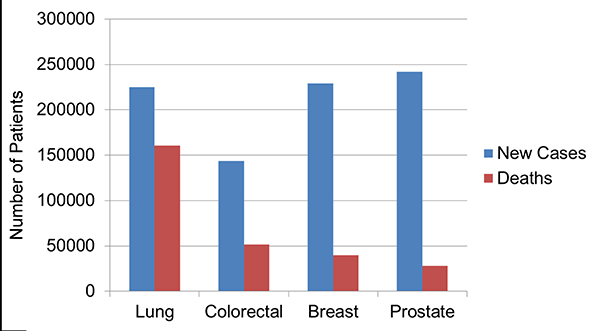
American Cancer Society, Cancer Statistics 2012
Genetic Epidemiology Projects
Our research program focuses on racially diverse populations which have varying ancestral population contributions. For example, African Americans have proportions of African and European ancestry. We leverage this genetic diversity and apply it to epidemiologic studies of disease, such as improved predicted lung function equations (Kumar, Seibold, Aldrich et al. 2010). Most genetic studies have been conducted in populations of European descent. Understanding genetics of diverse populations presents an opportunity for improved precision medicine. We have ongoing genetics projects within the Southern Community Cohort Study, the Vanderbilt Thoracic Oncology Biorepository, and the Vanderbilt DNA biobank. New collaborative projects are exploring the pulmonary microbiome.
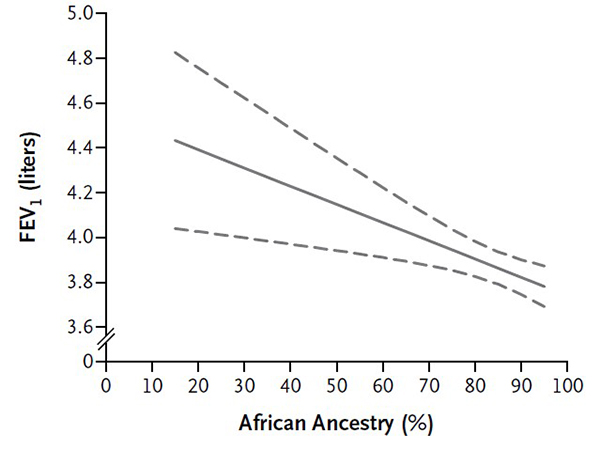
Kumar R, Seibold MA, Aldrich MC, Williams LK, Reiner AP, Colangelo L, Galanter J, Gignoux C, Hu D, Sen S, Choudhry S, Peterson EL, Rodriguez-Santana J, Rodriguez-Cintron W, Nalls MA, Leak TS, O'Meara E, Meibohm B, Kritchevsky SB, Li R, Harris TB, Nickerson DA, Fornage M, Enright P, Ziv E, Smith LJ, Liu K, Burchard EG. Genetic ancestry in lung-function predictions. N Engl J Med. 2010 Jul 22;363(4):321-30. doi: 10.1056/NEJMoa0907897. Epub 2010 Jul 7. PMID: 20647190
Clinical Epidemiology Projects
Our team seeks to improve the accuracy of the early diagnosis of lung cancer. We seek to do this through more accurately predicting who will have lung cancer in patients with suspicious lung nodules. We have developed the TREAT model which has an area under the curve of 0.87 and is being implemented into clinical practice. The link to this model calculator is https://treat.mc.vanderbilt.edu.
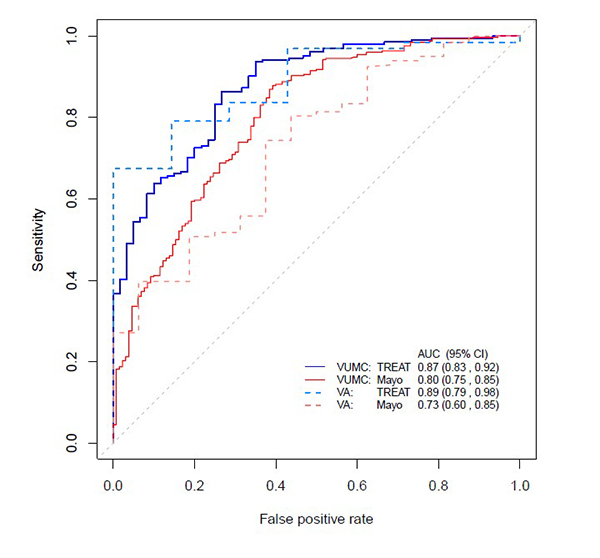
Deppen SA, Blume JD, Aldrich MC, Fletcher SA, Massion PP, Walker RC, Chen HC, Speroff T, Degesys CA, Pinkerman R, Lambright ES, Nesbitt JC, Putnam JB, Grogan EL. Predicting Lung Cancer Prior to Surgical Resection in Patients with Lung Nodules. Journal of Thoracic Oncology. 2014;9(10): 1477-1484. PMID: 25170644
We have also focused our efforts on the accuracy of FDG-PET scan to diagnose lung cancer and have found substantial regional variation depending on the exposure to endemic fungal lung disease.

Deppen SA., Blume JD, Kensinger CD, Morgan AM, Aldrich MC, Massion PP, Walker RC, McPheeters ML, Putnam JB, Grogan EL (2014). Accuracy of FDG-PET to diagnose lung cancer in areas with infectious lung disease: a meta-analysis. JAMA 2014;312(12): 1227-1236. PMID: 25247519
Environmental Epidemiology Projects
We are currently undertaking studies to understand lung cancer outcomes, with a particular focus on disease stage and treatment in understudied populations. Our work includes a publication on stage-adjusted lung cancer survival (Aldrich, Grogan, 2013).
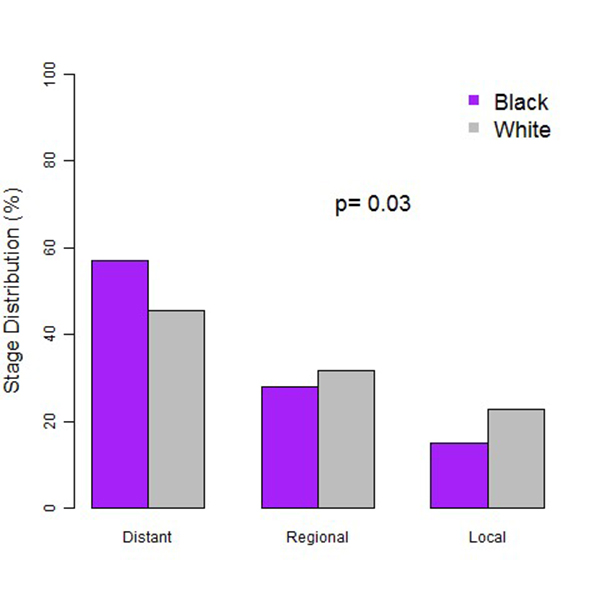
Aldrich MC, Grogan EL, Munro HM, Signorello LB, Blot WJ. Stage-adjusted lung cancer survival does not differ between low-income Blacks and Whites. J Thorac Oncol. 2013 Oct;8(10):1248-54. doi: 10.1097/JTO.0b013e3182a406f6. PMID: 24457235
We are also examining the impact of chronic obstructive pulmonary disease (COPD) on overall survival in an understudied population of African Americans and European Americans.
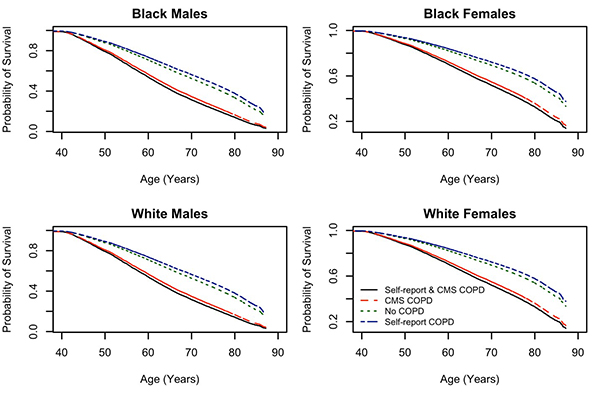
Aldrich MC, Munro HM, Mumma M, Grogan EL, Massion PP, Blackwell TS, Blot WJ. (2015) Chronic Obstructive Pulmonary Disease and Subsequent Overall and Lung Cancer Mortality in Low-Income Adults. PLoS ONE. In Press.
Precision Medicine
Our team has examined the impact of metformin on cancer outcome and is expanding this to pharmacogenetics.
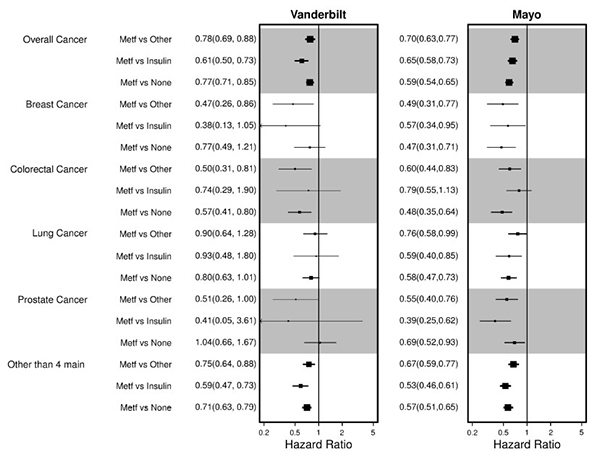
Xu H*, Aldrich MC*, Chen Q, Liu H, Peterson NB, Dai Q, Levy M, Shah A, Han X, Ruan X, Jiang M, Li Y, Julien JS, Warner J, Friedman C, Roden DM, Denny JC. Validating drug repurposing signals using electronic health records: a case study of metformin associated with reduced cancer mortality. J Am Med Inform Assoc. 2015 Jan;22(1):179-91. doi: 10.1136/amiajnl-2014-002649. Epub 2014 Jul 22. PMID: 25053577 *Equal authorship
Surgical Health Services Research
Our group has multiple publications in health services as it relates to thoracic surgical care and lung cancer. We have publications in cost-effective analysis of lung nodule evaluation, variation in lung cancer diagnostic procedures, resource utilization of lung cancer resections in the obese population, simulation research, lung transplantation, and minority representations in academic surgical teaching programs.
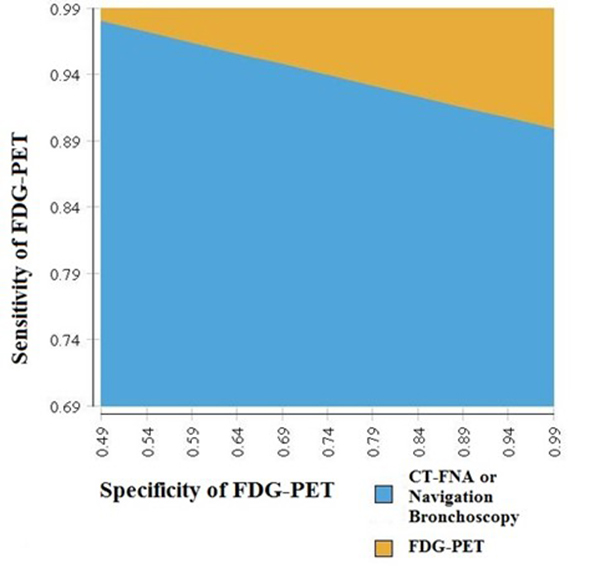
Deppen SA, Davis WT, Green EA, Rickman O, Aldrich MC, Fletcher SA, Putnam JB, Grogan EL, Cost-effectiveness of initial diagnostic strategies for pulmonary nodules presenting to thoracic surgeons. Ann Thorac Surg. 2014;98(4):1214-1222. PMID: 25087933
Big Data
The TREAT team has expertise in various forms of “big data”, ranging from genome-wide association studies to geospatial examination of clinical practice across the United States.
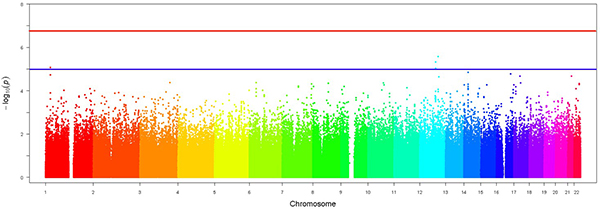
Genome-wide association study using data from the Vanderbilt biobank (BioVU).
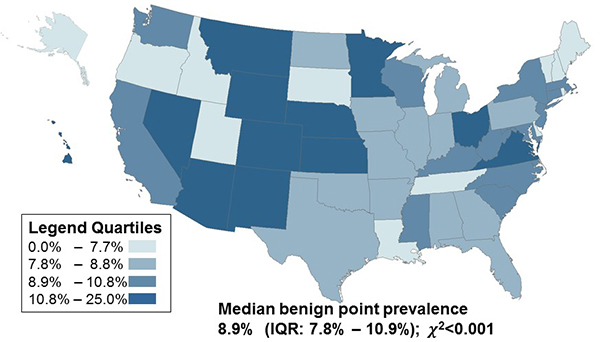
Variation in benign disease point prevalence after lung surgery.